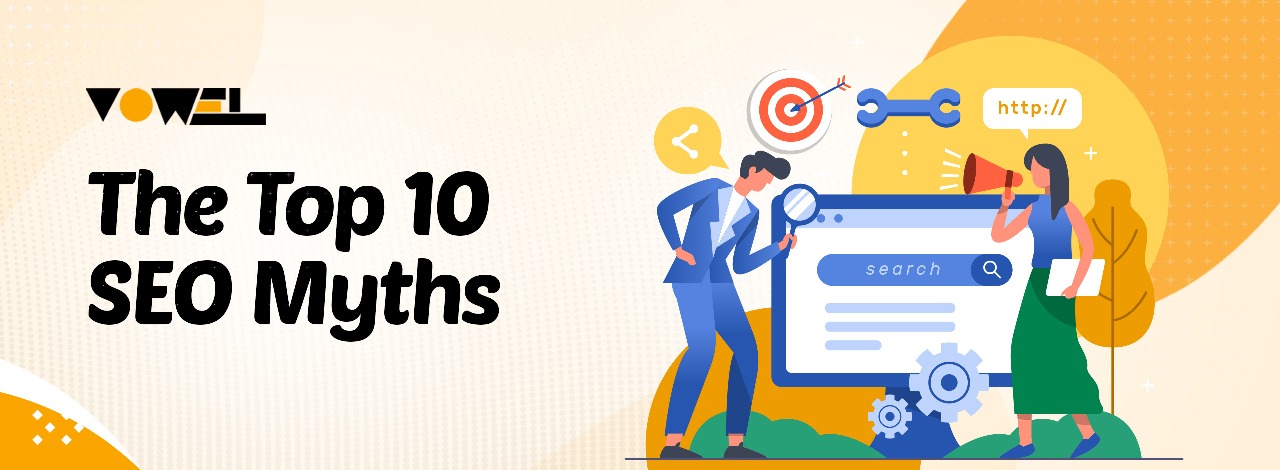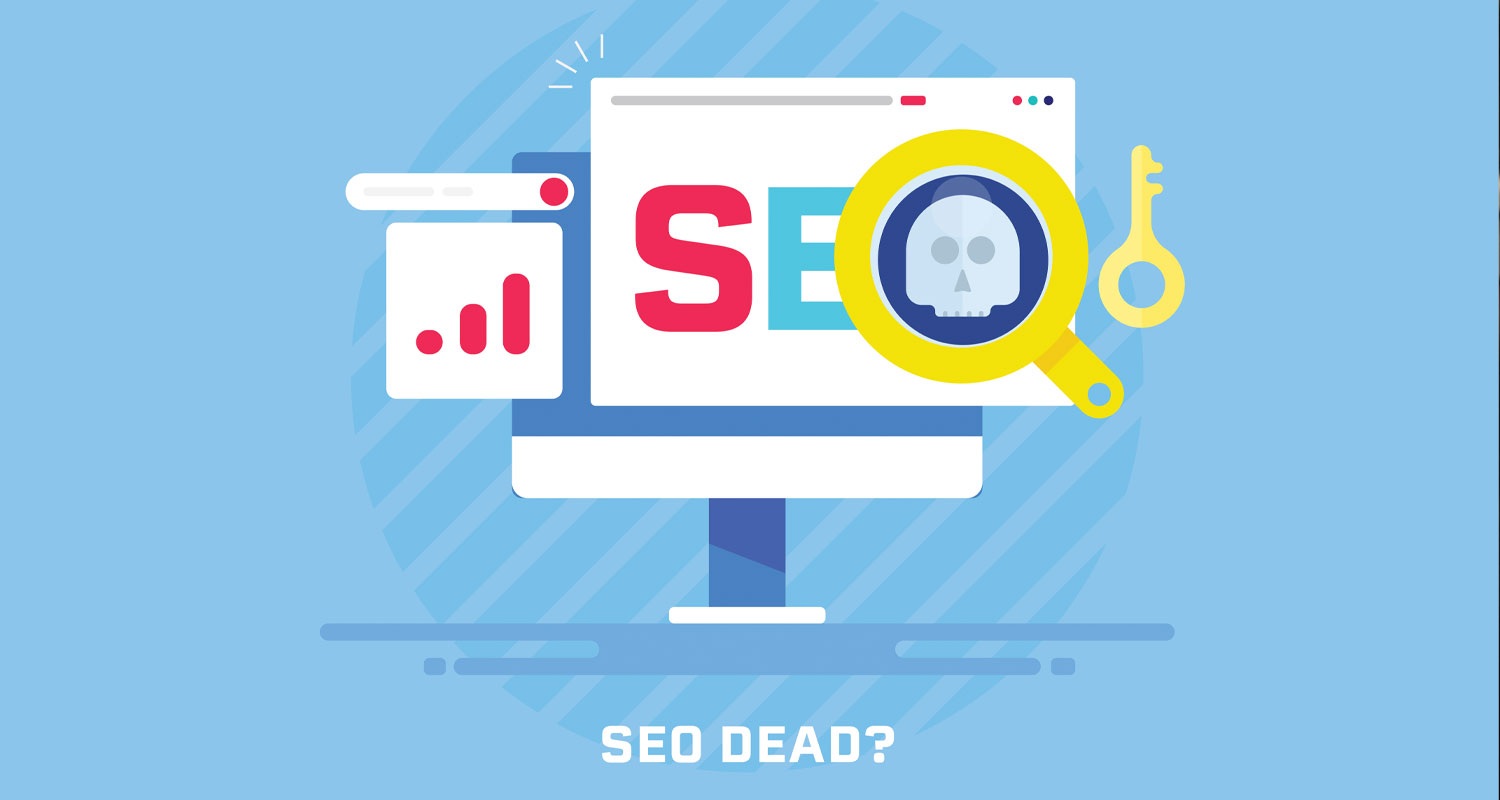

The Top 10 SEO Myths
SEO requires a lot of guesswork. It doesn't matter how loud the "experts" yell. Only the search engines understand how their algorithms actually function.
There is useful information out there. When it comes to SEO, however, scepticism can be beneficial. It's your most effective weapon for navigating the maze of half-truths and outright lies that you'll encounter on a regular basis.
1. SEO Is Not Relevant Anymore

Let's start with the oldest and most persistent myth of them all: SEO is dead and will never return. It is not. According to recent research, Google has the most daily searches of any platform on the web, with 8.5 billion.
For a long time, we've advocated for "everywhere optimization". You should optimize for more than just search. However, it should still be the focus.
In addition, organic search has a long session duration of 1 minute 38 seconds. This indicates that search visitors are highly engaged and valued.
Finally, organic search is the primary source of traffic to blog articles. It outperforms all other channels for long-term, consistent traffic.
2. ChatGpt Is Replacing Google.
Since 2022, when ChatGPT came inexistence, the SEO industry has been discussing how it will herald the end of traditional search. However, the data provides a different picture. A poll was conducted of over 5000 ChatGPT users, and the results were clear. People prefer Google for searching. This choice was actually more prevalent among ChatGPT Plus and Pro users. There's no doubt that ChatGPT is changing how people receive information. However, Google still obtains the majority of search traffic. And this is unlikely to alter in the foreseeable future.
3. The Length Of The Content Is Irrelevant

Remember how it seemed like every blog article on the internet was a massive 5000-word guide? Fortunately, those days have passed.
However, many SEO voices have taken a 360-degree turn. They've gone from saying, "Longer is better," to "Length doesn't matter at all."
To test this claim, we looked at 751 websites. The findings revealed that, while lengthy material is unnecessary, postings with more than 1000 words perform better. However, after 2000 words, the benefits become limited.
Your primary goal should always be to provide value, although posts should generally be longer than 1000 words.
4. Zero-Click Searches Have Made SEO Redundant
A zero-click search occurs when a user enters a search query but only sees the results.
The AI Overview, the featured passage, or the "People also ask" section may include the information they want.
There has been a lot of talk about how the zero-click trend is causing websites to lose clicks. Furthermore, although there is some influence, my research shows that since 2019, websites have seen an overall increase in organic traffic.
Furthermore, the number of queries that resulted in website clicks has remained relatively unchanged since the introduction of AI overviews.
5. E-E-A-T
E-E-A-T is not a ranking factor. This means Google does not measure it directly. Quality raters apply a set of criteria derived from Google's Search Quality Rater Guidelines. Instead, E-E-A-T connects with a wide range of actual ranking variables, including backlinks and content depth. It serves as a prism through which to evaluate your material. However, for optimization, it is more crucial to consider the specific criteria, or "signals," that Google employees use to determine E-E-A-T.
6. Brand Building And SEO Are Not Linked

SEOs like to focus on measurable optimization techniques. They frequently delegate the difficult task of branding to others. However, my study has shown that brand building is important in SEO.
In fact, an often-misunderstood Google patent shows that sponsored inquiries can be considered similarly to backlinks. When someone searches for your brand, Google may interpret it as a "vote" for your site. This, in turn, influences the outcomes of non-branded queries. When you consider that 33.49% of Google searches are branded, the importance of optimizing for brand is clear.
I am a great fan of the "rule of seven." If someone sees your brand seven times, they are considerably more likely to remember it. That's why it's critical to distribute your information across all channels---social, email, podcasts, sponsored ads, you name it.
7. Index Backlinks Days range between 30 to 60
There are numerous contradictory claims regarding how long Google takes to index backlinks. For whatever reason, 30-60 days became popular as a benchmark.
However, Google Search Advocate John Mueller has denied the assertion. When asked how long it takes to index backlinks, he said, "Sometimes days, weeks, and months."
Interestingly, this also applies to new pages. Google indexes information on an ongoing basis. In some cases, it can happen in minutes. On others, weeks.
8. Google Doesn't Like JavaScript

Have you heard that Google doesn't like JavaScript?
Claims of this nature typically state that Google cannot render client-side JavaScript (JavaScript that runs in a user's browser). Alternatively, Google crawls JavaScript-heavy pages at a slower rate.
However, MERJ and Vercel conducted a big investigation that refuted these fallacies. It shows that JavaScript is an effective tool for improving user experience that has no negative influence on SEO.
9. Google Uses Domain Authority
MOZ invented Domain Authority (DA) in 2006. It immediately became one of the most widely used measures in the game.
As Kristi Hines aptly states in Search Engine Journal, "There is domain authority - the concept - and Domain Authority (DA), the metric by Moz."
These two concepts should not be confused. Domain Authority is certainly not a ranking element. Trying to raise your DA is a waste of time at best. So, how about domain authority as a concept?
Again, the evidence reveals that Google does not utilize any measures to assess credibility and quality across its entire site. John Mueller stated: "We do not use domain authority. We normally strive to keep our metrics as granular as possible."
10. Local SEO = Reviews

Most small company owners take a straightforward method to ranking in the local pack (the top three results displayed before the main listings). It entails creating a business profile and soliciting customer feedback.
The argument goes: "If I can generate lots of four and five-star ratings, Google will think I'm relevant and the best."
In actuality, a slew of other variables come into play. These include the distance from the search location, the company type, and the keywords in the business title. Reviews are vital. But they're only one piece of the puzzle.
Conclusion
SEO is a constantly evolving field, but it remains a crucial component of digital marketing. While myths and misconceptions can create confusion, relying on data-driven strategies and industry best practices ensures success. As search engines refine their algorithms, businesses and marketers must stay informed and adaptable. The key takeaway is that SEO is far from dead; rather, it continues to shape how we discover and engage with content online.
Frequently Asked Questions
Is SEO still relevant in 2025?
Yes, SEO remains essential for driving organic traffic and improving online visibility.
Does content length impact SEO rankings?
While content length alone is not a ranking factor, posts over 1000 words tend to perform better in search results.
Can ChatGPT replace Google for search?
No, while AI tools like ChatGPT are changing information retrieval, Google remains the dominant search platform.
What is E-E-A-T, and does it impact rankings?
E-E-A-T (Experience, Expertise, Authoritativeness, Trustworthiness) is not a direct ranking factor but influences how content is assessed for quality.
How long does it take for Google to index backlinks?
Indexing times vary widely, from minutes to months, depending on multiple factors.

